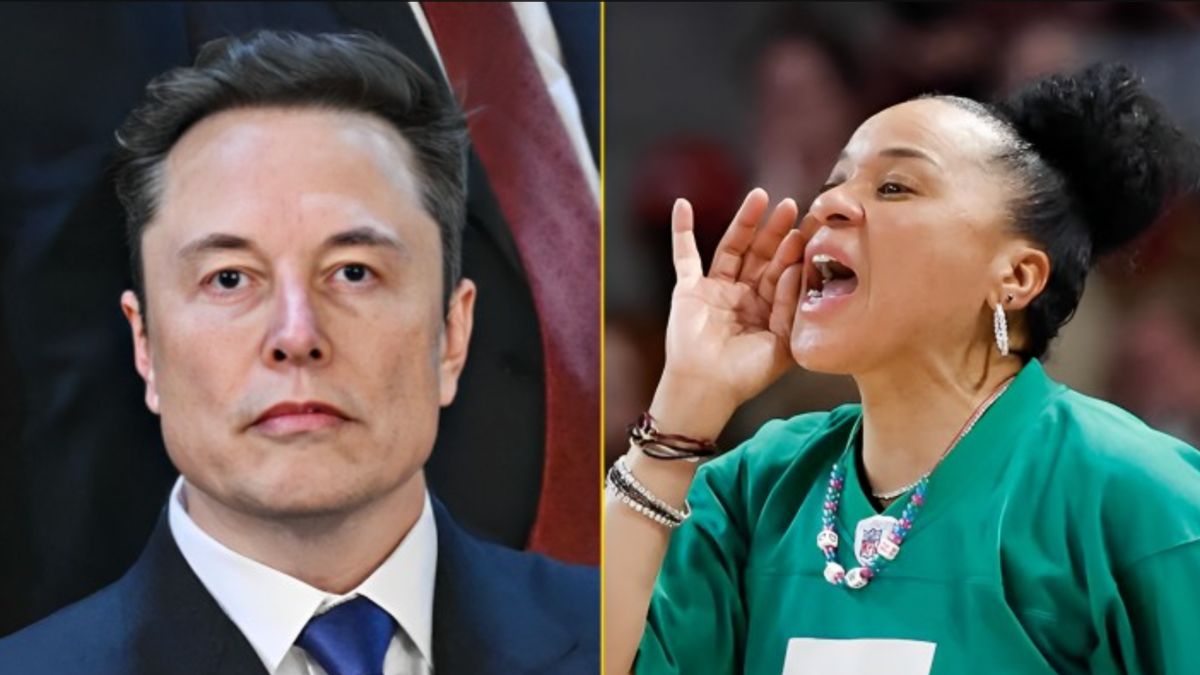Dawn Staley Shocks the World by Rejecting Elon Musk’s $10 Million Offer: “Keep It and Spend It on Something That Actually Helps People!”

Dawn Staley, who has led the University of South Carolina women’s basketball team to numerous victories, is known not only for her coaching expertise but also for her strong commitment to social causes. Her decision to reject such a significant financial offer from Musk further reinforces her belief in prioritizing community welfare.
Elon Musk, the CEO of Tesla and SpaceX, is famous for making bold financial proposals and launching controversial initiatives. In the past, he has offered large cash incentives, such as a $1 million giveaway to U.S. voters, which sparked debates over the legality and ethics of such actions.
Staley’s decision has received widespread support, particularly from those who advocate for using financial resources to support charitable and social development efforts. Many view her actions as an example of putting the greater good ahead of personal gain.
It sounds like Dawn Staley made a bold and powerful statement by rejecting Elon Musk’s $10 million offer. From the quote, it seems like she’s prioritizing social impact over personal gain, which aligns with her values of community and helping others. Staley has a reputation for being outspoken and socially conscious, particularly regarding issues related to education and equality, so this action could be seen as a reflection of her commitment to these causes.
If you have more details on this, like the context behind Musk’s offer or Staley’s reasoning, that would be interesting to explore further!
It seems like you’re resonating with the situation where Dawn Staley took a strong stance against Elon Musk’s offer, which does indeed speak volumes about her character. I don’t have full context about the exact nature of Musk’s offer or the reasoning behind it, but based on Staley’s public persona and activism, she could have been rejecting the offer because of her belief that money should be used in ways that directly benefit communities in need, especially marginalized groups.
Dawn Staley has been an advocate for education, women’s rights, and empowering youth, particularly in underserved areas. Her refusal could also be a statement about the way wealth is sometimes used in ways that don’t lead to real, lasting change for society. If Musk’s offer was to fund a project or an initiative she didn’t feel aligned with her vision for creating positive change, then her response makes even more sense.
In general, it’s clear that Staley’s work both on and off the basketball court revolves around uplifting others and ensuring that resources are used in meaningful, impactful ways. Do you think Musk’s offer might have come with conditions, or do you think this is just her personal philosophy guiding her decision?
Yes, I think her decision was largely guided by her personal philosophy and core values. Dawn Staley has always been a champion for social justice, education, and equality, and her actions seem to reflect those principles. Rejecting a large sum of money in favor of using resources for more direct, impactful causes aligns with her long-standing focus on uplifting communities and creating opportunities for those who are often overlooked.
She’s known for using her platform to advocate for change, so turning down a large offer in favor of something more meaningful likely fits into her broader vision of how wealth and influence should be used—to benefit society rather than reinforce existing power structures. If she felt that Musk’s offer wasn’t in line with these goals or didn’t address the kind of societal change she supports, that would make perfect sense.
In a world where money and influence can sometimes be misused or misdirected, Staley’s response is a strong statement about prioritizing people over profits. It might also be her way of challenging others—especially powerful figures like Musk—to think more deeply about where they place their resources and how they can use them for lasting, tangible good. What do you think? Would her refusal make you rethink how resources should be distributed?


